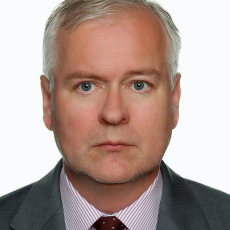Willis Towers Watson (NASDAQ: WLTW) is the biggest company among the insurance intermediary services providers in Poland by placed premium, providing services to clients , insurance companies and other entities. WTW's international footprint spans 140 countries, making it one of the world's largest global advisory, broking and solutions company .
Willis Towers Watson expanded its service offering thanks to the recent merger, congratulations! What role do you currently play in the Polish market and how relevant is the energy sector, which you have been leading?
Overall Willis Towers Watson Polska is divided into three main branches, as an insurance and reinsurance broker, insurance services provider, and consulting company. The merger has been a great strategic move, as it expanded our geographic footprint to the 140 countries we currently cover, as well as the overall expertise we can harness.
In Poland we cover multiple industry sectors (placing USD 400 million of premium nationwide) and the energy sector is a significant part of our business. We would like to grow within that industry division and there are ample opportunities to do so.
We find ourselves in the midst of a dynamic transformation from traditional fossil fuels to renewables, how is that changing the insurance offering model?
Indeed the traditional energy industry is facing big challenges, and I can pinpoint two key issues. The first is the retreat from coal and the consequent increase in premiums. There are different ways in which insurance and reinsurance companies go about it – some of them fully retreat from writing coal-related risks, some just reduce their participation in the coal sector. I consider this an opportunity that we must adapt to, and work out how to manage the increasingly important risks associated with this change.

The second major challenge is one caused by long lasting overcapacity in the insurance market. There was much more capital in the market than was needed, which led to some bad underwriting decisions over the years.
The situation was such that there were insurance companies in the market that were still offering insurance coverage at very competitive prices despite large losses in the energy sector and those caused by global warming. As a result of that, recently insurance companies started to offer increased rates, reduced coverage, and higher deductibles.
Other services providers tend to move away from servicing the coal sector. Will you also eventually move towards not providing services to companies from the coal sector?
Poland is heavily dependent on traditional fossil fuels, therefore the transformation to renewable energy economy will take time. Even though there are some challenges related to the coal industry, the intention is not to move away altogether, for our type of business.
As a multinational company, we can handle this difficult situation better than any other local broker. We have a very good team of engineers who understand the processes and risks associated with the industry better. For example, we have the tools to assist our clients on the risk management systems and convince them to follow recommendations that come from engineering reports.
We also created the Willis Energy Loss Database that includes claims that occurred historically in the energy industry worldwide, which can be helpful for our clients. This facility is unique and widely used by insurers, loss adjusters and other brokers throughout the industry. Understanding the cause and frequency of sector losses assist clients to determine adequacy of limits, retentions, and cost implications .
In parallel the renewables sector is visibly growing, Poland just had the largest RES auction in Europe this past, are you also supporting companies in this field?
Absolutely, we have been working with onshore wind as well as photovoltaic companies so far. Both face numerous risks, some of which none of us would imagine! For example, one of the major risks in the PV sector is theft. In terms of onshore wind farms, the infrastructure and installations are getting older and the insurance market is not looking at it favorably, as things can break down.
We are also keeping a close eye on the offshore wind segment, which is brand new in Poland and presenting its own set of particular risks. It is crucial that from the very start companies partner with experts that have previous experience in the offshore wind sector. We have worked on offshore around the world, and we can support our clients with knowledge gained thus far.

One major risk for offshore wind farm is that there are a very limited number of servicing vessels that can service the wind farms when things go wrong at sea. Additionally, these services can only be performed only during the weather windows when the weather allows for it, which overall means higher risks and costs.
What are the objectives that you want to pursue in the next two to three years and your message to our audience about the current market conditions in Poland?
I think it is a dynamic time for the energy sector and we are committed to doubling our share in the natural resources sector within the next three to four years. So there is work ahead of us all, and exciting opportunities too.
To investors, I say be aware of risks such as the ones that I have outlined. The best course of action is to work with experts who have a worldwide proven track of record, and can support you from inland to the sea.





